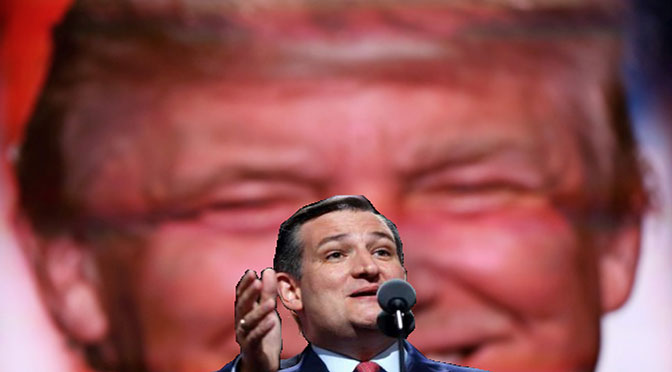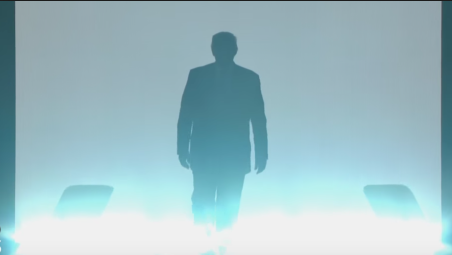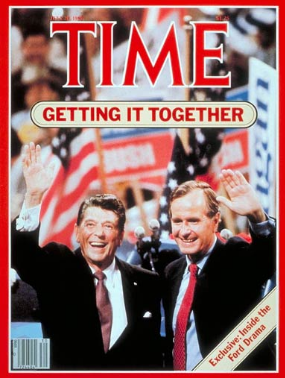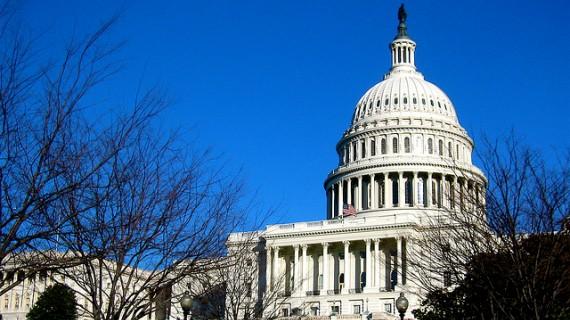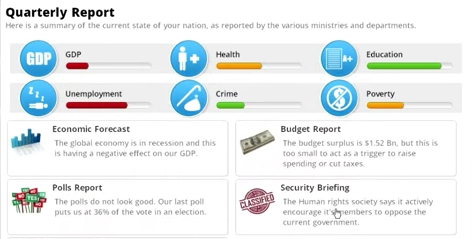I daydream, regardless of partisanship, how might the RNC 2016 convention have been ‘saved’?
[Special note here, I am intellectually free to explore ideas and change my opinion at any future point without recrimination. Or at least, that is the society we ought to live in. You can try to pin and label me as X but you would be wrong firstly and secondly I’m not running for public office and finally, look in the mirror and realize you too need to be intellectually free. One time I told my mother “I hate you, Mom!” Does that mean I hate my mother? In your mind, if it emotionally impacts people’s opinion of me then it should be said that Professor Nerdster hates his mother…..Get a life! Anyway, I can’t vote in the US (not a citizen) so while what’s happening there is educational and bizarrely entertaining….I had put this together…for fun.]
In US politics, the core objective of a major party convention is to create four days of propaganda for the nominee. The Republicans were light on policy in 2012 and heavy on the boring with the exception of the gaffes from the unlikely spontaneity of Clint Eastwood. Romney received no bounce after the convention and lost the general election for a complex web of reasons including (depending on the voter: how that Republican 2012 convention went). Surely in 2016, someone with the media savvy, charisma and viral-headline appeal could shake things up?
[Enter Trump]
Donald Trump’s ‘movement’ is a reaction against the establishment, of people who have had their jobs taken away from them, a mixture of causal confusion on immigration -> crime -> terrorism and a cry, no…actually scream, against policy wonks and against complex legislative deadlock, as well as the constrained utterances from scripted talking points.
Trump promised implicitly to tear the elite out of their ivory towers. Like other outsiders, Trump’s doom and gloom criticism is easy. Making promises off the back of the failed politics (as if politics could be a constant winning steak) + the cache that Trump enjoys from The Apprentice and other movie cameos etc. The solutions are shiny, catchy and facile. The dashing of policy nuance with ‘billionaire’ sales tactics has worked, or rather resonated. He will struggle massively to deliver on his policies. Destroy the deadlock? That’s what the US system loves: the status quo is reliable, gameable by those who play the game well…ie the elites. Maybe but only if he can truly establish his authoritarian hybrid in the heart of western democracy. A frightening thought as Trump just hasn’t grown much intellectually since his announcement a year ago.
What the Republican National Convention needed to do for Trump:
- Project a presidential figure that can be entrusted with nuclear codes; (mostly on maturity of policy)
- Establish a high level of unity within a divided party; (tough to quantify but success in the general election will unify)
- While also appearing more likeable considering his nasty direct criticism of opponents is not enough to win; (like-ability could have been better if Trump hadn’t already burnt so many bridges)
- Crystalize around policies that attract undecided voters; (beyond the LGBTQ outreach, Trump was too pre-occupied with his drifting base)
- Gain acceptance from the elite or complete rejection of the latter was achieved. (Rejection was the outcome, Scott Baio? The team of rivals didn’t materialise. Probably works for his existing base but getting out the vote may be half-hearted)
What Actually Happened At The RNC:
From the plagiarism that humiliated Melania Trump, to the B-List celebrity spotlight, to the lack of serious political influencers on the stage (chanting “lock her up” in reference to Hillary Clinton not much due process there: rhetorical flourishes abound), to Ted Cruz’s non-endorsement of Trump and to Donald Trump’s teleprompter acceptance speech, the Republican Convention was not the launch Trump needed to win the presidency. It was a mixed bag of surprises which were moderately entertaining. Trump did not broaden his appeal, he reached out to the L…G..B…T…….Q community, yes. But he didn’t soften his image much. As an expert in mainstream media click-bait mastery, Trump focused on the negatives using debunked figures regarding immigrant crime for example. It could have been a revolutionary convention but he hasn’t evolved and remains intellectually lazy on policy….possibly like his base.
The convention was Trump’s to win but even the ratings were bad! John McCain had more television viewers (obviously, these stats exclude online streaming & it’s apples and oranges) in 2008; 35 million versus 32 for Trump. 24 million people watched the Fox debate in August last year….leading pundits to speculate “has Trump finally peaked?” What should he have done differently?
How It Could Have Been Better
Over promising is Trump’s brand. He must have felt that to be presidential he had to temper his flare. Nonetheless, this convention awkwardly compromised by joining the tradition of nuanced affairs. Trump hasn’t upped his entertainment game when it was so critical, instead he’s communicated in a bland teleprompter style. His speakers sucked, he couldn’t attract anyone of consequence and putting his spoiled kids up for speeches is dis-respectful at a minimum. In an effort to become more presidential, Trump has created a double negative; a) alienating his supporters while b) letting his speech writer dictate Republican policy. Here’s how he could have done his convention better:
1. Go After The Democratic Convention:
First of all, move the convention after the Democratic National Convention. Logistically, that would be a pain but the Republicans have always had the same image problem in their conventions regarding a lack of policy, a homogenous caucasian demographic and being creepy. 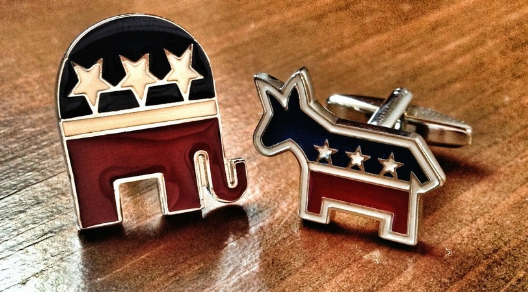 Since I can remember the Republicans convention has happened before the Democrats. And since I can remember, the Democrats have been able to expend a good 25% of their convention providing rebuttals to Republican talking points. That doesn’t add up.
Since I can remember the Republicans convention has happened before the Democrats. And since I can remember, the Democrats have been able to expend a good 25% of their convention providing rebuttals to Republican talking points. That doesn’t add up.
2. Bring Back The Trump Levity, Why Not Interrupt Ted Cruz’s Speech Using The Jumbo Tron:
During Ted Cruz’s 23 minute ‘vote your conscious’ speech: Donald Trump should have commandeered the Jumbo Tron behind Cruz to interrupt his speech after the 15 minute mark to say:
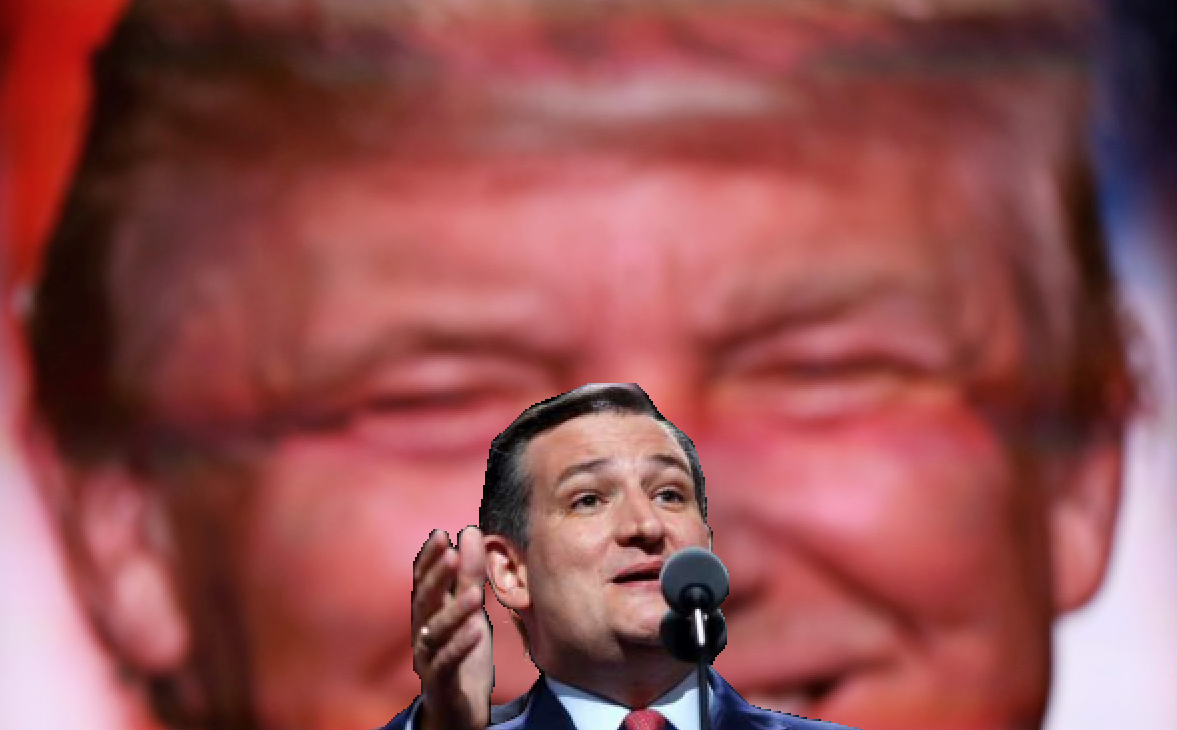 “Hey, Ted….Ted. Look behind you. It’s me up here. Wrap it up Ted. And hey, aren’t you going to endorse me at some point?” It would have been the defining moment of the entire week. Trump knew what was in Cruz’s speech so capitalize not on a random wave but a humourous take over. The problem is the Trump campaign doesn’t have the broad base of talent needed, you can’t just hire your children and ideologues like Stephen Miller.
“Hey, Ted….Ted. Look behind you. It’s me up here. Wrap it up Ted. And hey, aren’t you going to endorse me at some point?” It would have been the defining moment of the entire week. Trump knew what was in Cruz’s speech so capitalize not on a random wave but a humourous take over. The problem is the Trump campaign doesn’t have the broad base of talent needed, you can’t just hire your children and ideologues like Stephen Miller.
3. Put More Effort Into the Policy Both At Ideation and Presenting Those Outputs At The Convention
Make your arguments visually. No politician has done this successfully yet. With Trump, there was a glimmer of hope that things would be different. But that’s mostly spooky glimmers. Bring reality tv to policy discussions. That was the revolution that has yet to materialised on either side of the aisle. Instead Trump is baking up policies without consultation. Infographical, data-led support for what you are advocating is the future of political communication. Rhetoric is great but complimenting rhetoric with visual support is uniquely appropriate for conventions. We know that debates have no props, but in the age of powerpoint, platitudes could very well be secondary to ideas and vision. Use visuals to convey the message. I might be naive but if you want people’s votes, you need to appeal to their rational selves. Show them why they should vote for Trump.
4. Double Down…but…Get Serious About Policy:
Donald Trump has had a full 12 months to become competent with the facts, to study up to modify his viral policy declarations. Trump went viral every time he unveiled policy on theses issues:
- A Wall that Mexico Will Pay For;
- Deporting Millions of Illegal Immigrants;
- Standup to China & Mexican;
- Turning Away Foreign Muslims;
- Withdraw Funding with Strategic Allies To Save Money;
- Punish US Companies That Leave and Reward US Manufacturers;
- Re-negotiate Free Trade, NAFTA to the TPP;
- Make American Great Again…
But like a politician, he can’t admit mistakes. These policies are cray cray (crazy). He’s only modified the wall policy by dropping the Mexico claim and then foreign muslims has been modified to troubled countries. He applies business logic to governance which is intriguing. His appeal was that he was flexible, business-like, never reveal the details of your dealings, he recognised that politicians will set exit dates for Iraq or other policy declarations which tie that politicians hands. But for the most part, over the past 12 months, his policies didn’t evolve. He tested slogans and attack lines with his crowd fanbase to defend his viral positions AND made himself available to the media so consistently (with his style of neural linguistic programming + repetitive short stream of conscious) THAT he took the mainstream by storm. At a minimum, in 2016, conventions should be policy dialogues. Do social experiments with delegates at the Republican Convention, simulate trade deal negotiations, turn the convention into a giant think tank for policy development, poll on the issues….probably needs more development but maybe conventions aren’t for ideas….
 5. Return to Stream of Consciousness But Memorize Your Core Messages:
5. Return to Stream of Consciousness But Memorize Your Core Messages:
The teleprompter destroyed Donald Trump’s stream of conscious appeal, replacing his creative flow with a sophomoric oratory that any standard politician would deliver. If you need the teleprompter, just bullet point the core ideas. With bluster and blunt language, Trump inspired his angry and energized base and if he could marry that with independent voters he would have achieved what was needed. Too much blunt talk without the humility to apologize is his downfall. There is a balance however.

